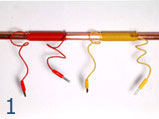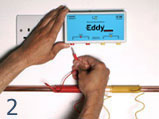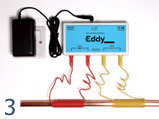
Fed-Up Fighting Limescale On Your Taps, Showerheads,
Basins And Bath?
 |
 |
||
 |
 |
 |
|
How Water Softening WorksHard water often causes problems for homeowners and there is a simple solution to the problem; water softening. However, before we go into how water softening works, it is important to understand what hard water actually is. Hard water is simply water that is laden with minerals. Water softening helps to remove the excessive minerals from the water and in so doing, corrects the white spots on dishes, soapy residue on clothes and stiff, lifeless hair. How it all comes together Most water softening systems make use of an ion exchange system that removes dissolved minerals such as sulphur, iron, calcium and magnesium. This type of water softening system contains a Zeolite matrix or a number of small plastic beads. Each of these is covered in sodium ions and as the water passes the minerals in the water take the place of the sodium ions. Eventually, there are no more sodium ions and water softening can no longer take place until the zeolite is regenerated. Regenerating the benefits Regeneration is an important step in the water softening process and takes place then the zeolite is soaked in a sodium ion rich solution. You can use a strong solution of household salt to do this. Once the zeolite or beads are recharged, all you have to do is to flush the remaining solution with the unwanted minerals in it away. However, using this method means that the water softening process in your home is adding more salt to the water that is being softened. This problem can be bypassed by the use of alternate salts such as potassium chloride. Before anyone uses a water softening system like this, they should consult their doctor to discuss the minerals, potassium or sodium that they will be consuming. There are also other water softening systems that bypass the use of salt altogether. Instead, these systems make use of charcoal filters or even electric ions. Electric systems use a coil that is wrapped around water pipes and uses electric ions to turn the minerals into soft crystals that are then suspended in the water instead of dissolving again. |
